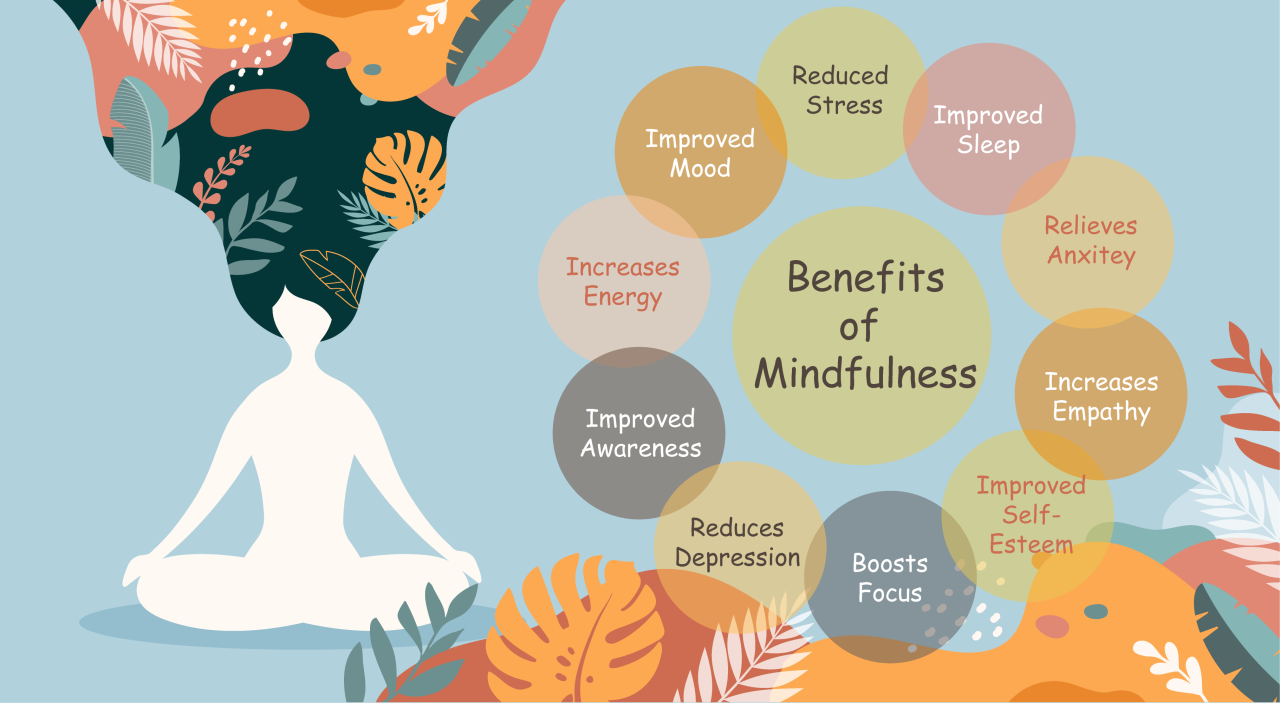In our fast-paced world, where distractions are ubiquitous and stressors are constant, the practice of mindfulness has emerged as a beacon of hope for many seeking solace and clarity. Mindfulness, rooted in ancient meditation traditions, emphasizes being present in the moment, cultivating awareness of our thoughts, feelings, and surroundings. This article delves into the essence of mindfulness, its numerous benefits, and practical strategies for integrating this transformative practice into our daily lives.
The Essence of Mindfulness
At its core, mindfulness is the practice of paying attention to the present moment without judgment. It involves observing our thoughts and feelings as they arise, recognizing them without becoming overwhelmed or reactive. This practice encourages us to slow down and appreciate life as it unfolds, rather than getting lost in regrets about the past or anxieties about the future. By grounding ourselves in the present, we can break free from the mental clutter that often distracts us from truly experiencing life.
Mindfulness has its origins in Buddhist meditation but has been adapted into various secular practices in recent years. Pioneers like Jon Kabat-Zinn have played a significant role in bringing mindfulness into mainstream psychology, demonstrating its effectiveness in reducing stress, enhancing emotional regulation, and improving overall well-being.
The Benefits of Mindfulness
Mindfulness offers a wealth of physical, mental, and emotional benefits that can significantly enhance our quality of life. Research has demonstrated that regular mindfulness practice can lead to remarkable transformations in various aspects of our existence.
Reduced Stress and Anxiety
One of the most compelling benefits of mindfulness is its ability to alleviate stress and anxiety. By fostering a sense of relaxation and encouraging individuals to focus on the present moment, mindfulness reduces the levels of cortisol, the body’s primary stress hormone. Through techniques such as deep breathing and guided meditation, practitioners can cultivate a greater sense of calm, even in the face of life’s challenges. This reduction in stress leads to improved overall health and well-being, creating a positive feedback loop that encourages further mindfulness practice.
Enhanced Focus and Concentration
In a world filled with distractions, mindfulness serves as a powerful tool for improving focus and concentration. By training the mind to remain present, individuals learn to resist the pull of external interruptions and become more engaged in their tasks. This heightened focus not only enhances productivity but also leads to a greater sense of satisfaction and accomplishment in daily activities. Whether at work or home, cultivating mindfulness allows individuals to dive deeper into their experiences, fostering creativity and innovation.
Improved Emotional Well-Being
Mindfulness encourages emotional regulation, enabling individuals to respond to situations with clarity and intention rather than reactivity. This practice fosters resilience and self-awareness, allowing practitioners to recognize and process their emotions without being overwhelmed by them. As a result, individuals often experience improved mood, decreased feelings of depression, and an enhanced overall sense of well-being. The cultivation of emotional intelligence through mindfulness can lead to healthier coping mechanisms and a more balanced emotional landscape.
Strengthened Relationships
Mindfulness plays a crucial role in enhancing interpersonal relationships. By cultivating awareness and empathy, practitioners can engage in more meaningful communication and deepen connections with others. Mindfulness promotes active listening, encouraging individuals to be fully present in conversations and to understand others’ perspectives better. This heightened sense of connection fosters healthier relationships, reducing conflict and promoting a supportive environment where individuals feel valued and understood.
Physical Health Improvements
The physical health benefits of mindfulness are equally compelling. Research has shown that regular mindfulness practice can lead to reductions in chronic pain, lower blood pressure, and improved sleep quality. By encouraging relaxation and reducing stress, mindfulness contributes to overall physical well-being. Additionally, many practitioners report improved immune function and greater vitality, further underscoring the holistic benefits of incorporating mindfulness into daily life.
Practical Strategies for Mindfulness
Integrating mindfulness into daily life does not require extensive training or significant time commitments. Simple practices can be easily woven into the fabric of everyday routines. For instance, individuals can start with mindful breathing, taking a few moments to focus on their breath whenever they feel overwhelmed. This practice can be done anywhere—during a break at work, while waiting in line, or before bedtime.
Another effective technique is mindful walking, where individuals focus on the sensation of their feet touching the ground, the rhythm of their breath, and the sights and sounds around them. This practice encourages a deeper connection to the environment and enhances the experience of being present.
Engaging in mindful eating is another valuable strategy. By slowing down and savoring each bite, individuals can cultivate a greater appreciation for food while also improving their relationship with eating. This practice encourages individuals to listen to their bodies and recognize hunger and fullness cues, promoting healthier eating habits.
Conclusion
Embracing mindfulness is a powerful journey toward inner peace and clarity. By cultivating the ability to remain present in the moment, individuals can experience profound transformations in their mental, emotional, and physical well-being. As mindfulness becomes an integral part of daily life, it opens the door to a deeper understanding of oneself and the world around us, ultimately leading to a richer, more fulfilling existence. In a world filled with distractions, the practice of mindfulness serves as a gentle reminder to slow down, breathe, and truly engage with the beauty of each moment.










+ There are no comments
Add yours